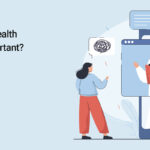“Music can lift us out of depression or move us to tears – it is a remedy, a tonic, orange juice for the ear.”
– Oliver Sacks
Music has a powerful effect on our emotions. It can make people feel happy, sad, energized, excited or relaxed. Music has been a part of human life for thousands of years. The desire to express and communicate through music is deeply rooted. Today, music therapy is used to treat multiple mental as well as physical disorders.
Benefits of music therapy –
There are extra benefits to listening or creating music that talking therapies may not be able to offer. Learning and practicing some piece of music can improve memory skills, coordination, reading, perseverance, etc. People also have a great sense of achievement from creating a piece of music, which can help improve their mood and self-esteem. It allows people to express themselves in a creative way, which can be a more enjoyable way of exploring emotions. There are a lot of studies that support the benefit of music therapy for depression and anxiety. Apart from that, it helps to reduce the physical effects of stress, improves healing, helps improve self-expression and communication.
What happens in the brain?
The way music affects the brain is very complex. All aspects of music such as melody, tempo, pitch are processed by various areas of the brain. For instance, we often have goosebumps when we hear some powerful music; the reason behind that is, the reward centers in the brain produce strong physical signs of pleasure. Music therapy can use these deep physical reactions the body has to music to help people with mental health conditions. Science has proven that music releases mood-enhancing chemicals named Dopamine and Endorphins into our body which music therapists can capitalize on to aid in the medical treatment of patients.
- Dopamine – This is known as the ‘feel-good ‘ hormone and when released it increases the feelings of happiness or pleasure. It is also released while listening to music. It makes us feel good and encourages us to seek out those activities to achieve that feeling. Low levels of Dopamine in the brain can cause specific symptoms of depression. While seeking music therapy, levels of Dopamine increase which can help patients to feel good about themselves and increase self-confidence.
- Endorphins – Endorphins give a person a happy state of mind and a sense of euphoria. Scientists have discovered music can create this feeling of happiness by releasing this natural chemical. Endorphins are also linked to being a great pain reliever and that is the reason we sometimes forget about our pain temporarily when we listen to our favorite music.
Music Therapy for Depression –
Depression is a mood disorder that is characterized by persistent low mood, loss of interest in daily activities, loss of pleasure, etc. Music therapy may help modulate moods and emotions. It involves regular meetings with a qualified music therapist, may help improve mood through emotional expression. Medications work well for depression, they are effective, so is talk therapy. But, not all patients respond well to medication, and they are not always effective on their own in treating depression. Medications work best as part of a comprehensive treatment strategy. Music therapy has been suggested as a possible complementary therapy for depression.
There has been extensive research done on how music therapy can help depression. In one research, the researchers included a total of 421 people of any age group from adolescents to older people having symptoms of depression and anxiety. The study compared the effects of music therapy versus psychological therapy. Additionally, they examined the differences between two different forms of music therapy: active (where people sing or play music) and receptive (where people listen to music). They found that music therapy along with treatment is way more effective than just the treatment. Music therapy seems to reduce depressive symptoms and anxiety and helps to improve functioning (e.g. maintaining involvement in job, activities, and relationships).
Although music therapy is not a cure for depression, it can offer short-term benefits by improving mood and encouraging connection and self-expression. With the help of therapy and/or medications, music therapy works best and it can help improve a person’s mood and specific symptoms of depression as well.
JOIN WAITT’S WORKSHOP ON MUSIC THERAPY BY PURVAA SAMPATH (FOUNDER, MAYAH’S UNIVERSE) ON 17TH APRIL 2021, SATURDAY, 5 P.M. TO 6 P.M.
HERE IS THE LINK TO REGISTER –









